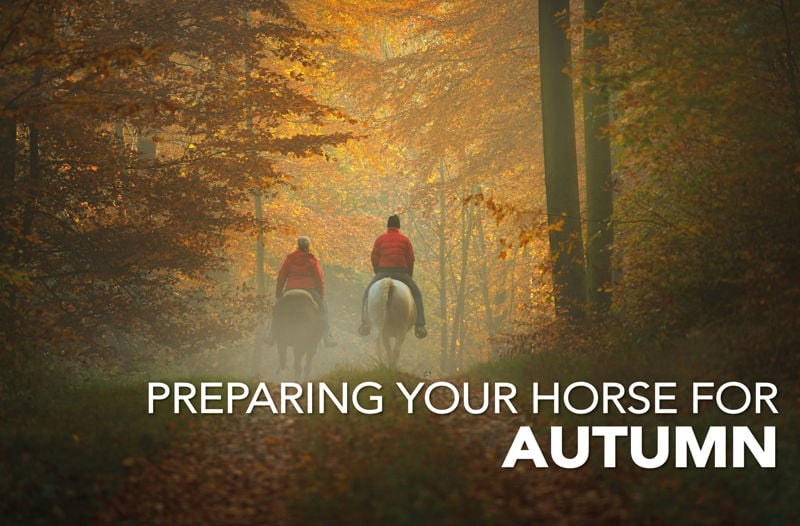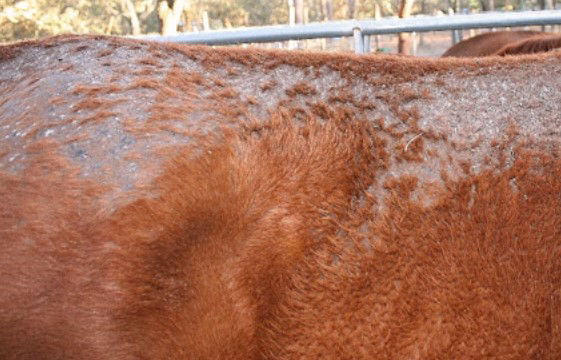Written by Stephanie Hyland (MSc. RNutr.)
Autumn brings cooler temperatures and wetter weather which will influence your horse’s management regime in terms of the work that you do with them and their turnout time in the field. With the change in season, it is important to keep a close eye on your horse as there may be new challenges that can affect their health.
Common Autumn ailments include digestive issues, mud fever, laminitis and skin issues. How can you prepare for Autumn and support your horse’s health throughout this season?
Digestive issues in horses
Autumn can bring about a rise in digestive issues with colic being a common affliction of horses at this time of year. Wetter fields and cooler temperatures mean that most horses will be spending an increasing amount of time in their stables. Reduction in movement has a direct influence on gut motility and slow digestive transit increases the risk of colic. Keep your horse moving as much as possible and consider incorporating some hand walking into your horse’s daily routine.
When temperatures are low, water intake in horses also decreases which greatly increases the risk of impaction colic. Frozen buckets and field troughs also discourage horses from drinking so consider providing your horse with warm water in a bucket, especially around feed time and after exercise, to try and encourage water intake.
Fallen leaves and reduced grass growth encourage horses to look elsewhere for things to forage on. Wilted leaves, tree seedlings and weeds can be harmful to your horse and cause digestive upset. Ensure that enough forage is provided for your horse either in the field or stable to discourage them from eating things they shouldn’t be.
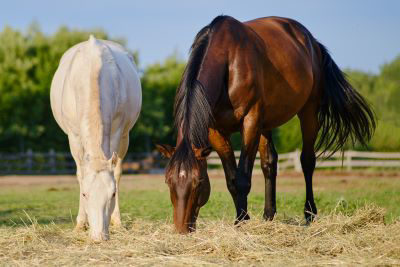
Ensure that enough forage is provided for your horse either in the field or stable
Skin problems in horse
Rain Scald
Prolonged periods of wet weather can weaken the skin and cause damage which increases the risk of Rain Scald. Rain Scald is an inflammatory skin condition caused by the bacteria Dermatophilus Congolensis and can be passed between horses through touch or sharing tack, rugs and brushes.
This skin issue commonly presents as scabs and hair loss along the horse’s neck, back and hindquarters but can also develop on their legs if they spend long periods of time standing in wet conditions.
Rain Scald presents as scabs and hair loss along the horse’s neck, back and hindquarters.
Mud Fever in horse
Unlike Rain Scald, Mud Fever is not contagious and therefore does not spread from horse to horse. Mud Fever, also referred to as greasy heels, or cracked heals, causes irritation to the lower legs of the horse.
Mud Fever is caused by bacteria that leads to infections in the skin when it is weakened and softened by wet conditions. Common signs of Mud Fever include scabs and damaged skin on the heels, hair loss and swelling around the affected area.
Whilst standing in wet and mud conditions or having wet legs are the most common risk factors for horses developing Mud Fever, a weakened immune system, such as for horses with Cushing’s disease, also increases the risk of Mud Fever as the horse has a reduced ability to fight off infections so cuts to the skin or a weakened skin barrier will make them more susceptible to this issue.
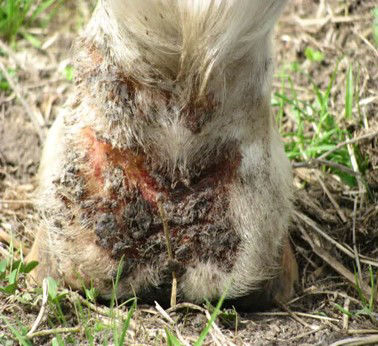
Common signs of Mud Fever include scabs and damaged skin on the heels, hair loss and swelling
(Image: World Horse Welfare)
Pasture Associated Problems
Autumn Laminitis
Commonly thought of as a spring ailment, Laminitis can also affect horses in Autumn. One in ten horses are affected by laminitis so being aware of the dangers in Autumn can help to prevent this painful and debilitating condition.
Cooler and wetter weather in the Autumn brings a renewed growth in the grass after hotter and dryer periods in Summer when grass is scorched and stops growing. Fresh growing grass has a higher sugar content and horses that suffer with metabolic issues and obesity will be more sensitive to these changes in sugar which could trigger laminitis.
Maintaining optimal bodyweight can reduce the risk of horses suffering from hyperinsulinemia. If your horse suffers from a metabolic disease such as EMS or Cushing’s or if you are worried about these issues, contact your vet as soon as possible. For these groups of horses, restricting their grass intake will help to reduce sugar intakes making managing weight easier and reducing the risk of laminitis occurring.
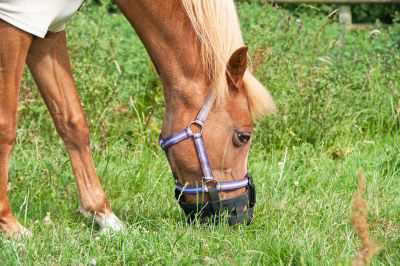
Restricting their grass intake reduces the risk of laminitis occurring.
Seasonal Pasture Myopathy
With Autumn rolling in, trees will start to drop their leaves and seeds, and some species of trees can cause a big problem for horses. If your horses are grazing land near Sycamore trees, keep a close eye on any Sycamore seedlings sprouting in the field. Sycamore Seedlings contain a toxin called hypoglycin A, which can cause a condition known as Atypical Myopathy when ingested. Signs include muscle weakness / tremors, reluctance to move / stiffness, irregular heartbeat and dark, brown coloured urine. This condition can be life threatening and early veterinary intervention is crucial if you suspect your horse may have ingested Sycamore seeds or seedlings.
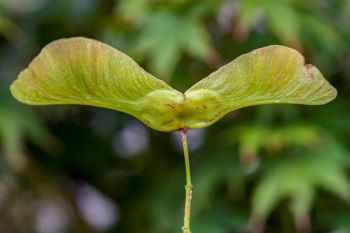
Sycamore seedling
For any advice or questions you may have, please don't hesitate to reach out to our expert nutrition team. You can call 0800 585525 Monday-Friday 8:30am-5:00pm. Email [email protected], or send us a DM on social media.


